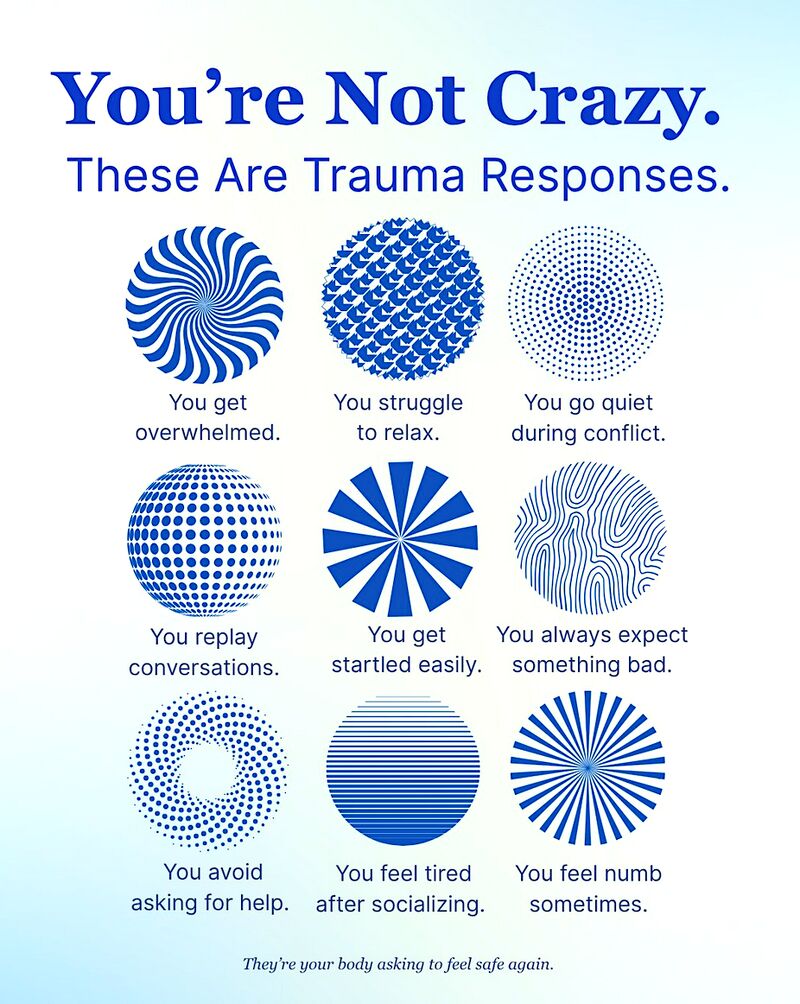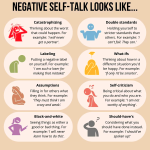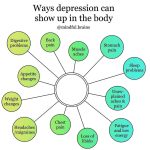“Why do I shut down when things get tense?”
If you’ve ever wondered that, you are not broken. You’re human.
When we go through trauma – whether it’s a single event or years of stress – our brain learns one main lesson: stay safe at all costs. The tricky part is it keeps applying that lesson even when we’re not in danger anymore.
That’s why trauma responses don’t always look like what people expect. It’s not just flashbacks or nightmares.
It can also be:
✔️ Feeling exhausted after a short conversation
✔️ Avoiding asking for help
✔️ Replaying a mistake from years ago
✔️ Getting startled by small things
These aren’t character flaws. And you are not going crazy. These reactions are survival strategies your nervous system learned when it needed them most.
🔸 Three Ways to Work with Trauma Responses 🔸
✅ Name it Without Judgment
Instead of “What’s wrong with me?” try “This is my body trying to protect me. Naming it for what it is helps remove the shame.
✅ Regulate Before You Reason
Deep breaths, grounding exercises or even a short walk can calm your nervous system enough for your brain to think clearly again.
✅ Find a Safe Connection
Healing happens in the presence of trust. Whether it’s a therapist, a support group or a friend who truly listens; connection helps re-teach your body that it’s okay to relax.
“The body remembers what the mind forgets.” – Bessel van der Kolk
Trauma responses aren’t signs of weakness.
They’re signs your body is still trying to keep you alive.
With the right support, what once felt overwhelming can truly become a source of strength.
Peter Zafirides, MD
Central Ohio Behavioral Medicine
(Image Credit: Dr. Konstantine Bichikos)
(For educational and informational purposes only. Not medical advice.)
PSYCHIATRY
COLUMBUS, OHIO
If you’re experiencing anxiety or depression do not take these symptoms lightly. The earlier you get help, the quicker you can find healing, because your symptoms truly can get better. Working with our psychiatrists is a proven path for dealing with such concerns. Contact us to talk about getting you the help you need and deserve.





